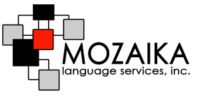Glossary/reference before translation: a must? Thread poster: Ivette Camargo López
|
|---|
Hi,
To date, I have usually worked with either a reference TM or a glossary provided by the customer.
However, I got this rather large volume of work with *NO* reference material at all (except the original manuals in English).
So 2 quick questions:
1) Is it general practice to require the creation of a glossary before translating? (assuming the customer is willing to accept/pay this)
2) If yes to the above question, charge by the ... See more Hi,
To date, I have usually worked with either a reference TM or a glossary provided by the customer.
However, I got this rather large volume of work with *NO* reference material at all (except the original manuals in English).
So 2 quick questions:
1) Is it general practice to require the creation of a glossary before translating? (assuming the customer is willing to accept/pay this)
2) If yes to the above question, charge by the hour or by the entry?
I searched the Proz.com forum database looking for this, but I found mostly entries related to the Kudoz glossary.
If anyone knows if this topic has been discussed before, I would appreciate the reference link. If not, I would appreciate your feedback.
Thanks in advance,
Ivette ▲ Collapse
| | | |
| Not a must, but important for your own work | Aug 30, 2006 |
No, most customers don't require this. I have never been asked to do this by a customer, but then I'm not a technical translator - maybe this is more common in technical fields. If you are asked to create a glossary, however, you should be paid for that. Maybe someone with more experience in this can weigh in on what/how to charge.
However, if you are the first person translating these manuals, your terminology could well become authoritative. So it would be in your best interest to... See more No, most customers don't require this. I have never been asked to do this by a customer, but then I'm not a technical translator - maybe this is more common in technical fields. If you are asked to create a glossary, however, you should be paid for that. Maybe someone with more experience in this can weigh in on what/how to charge.
However, if you are the first person translating these manuals, your terminology could well become authoritative. So it would be in your best interest to create a glossary for yourself, even if your customer doesn't require it. ▲ Collapse
| | | |
Peter Linton (X) 
Local time: 22:07
Swedish to English
+ ...
| A case study | Aug 30, 2006 |
I try to persuade customers to prepare terminology in advance. I explain that it ensures consistency, gets better results and may even save them money.
Some of them prepare a small and rather limited glossary, others can't see the point. But on one occasion I did succeed.
On a large technical project I persuaded the customer to prepare the terminology in advance. Part of the deal was that I offered them a lower price if they agreed to pay for my air travel, hotel and ti... See more I try to persuade customers to prepare terminology in advance. I explain that it ensures consistency, gets better results and may even save them money.
Some of them prepare a small and rather limited glossary, others can't see the point. But on one occasion I did succeed.
On a large technical project I persuaded the customer to prepare the terminology in advance. Part of the deal was that I offered them a lower price if they agreed to pay for my air travel, hotel and time (by the hour) for three days at their headquarters. They agreed. (Actually I spent 7 days there - 4 at my expense, on tax-deductible language immersion in an attractive city).
So we spent 3 very fruitful days working on a very large and comprehensive glossary. Just as well -- they had some unusual terminology I would never have guessed.
Then I came home and spent some weeks translating their user guides. Having the glossary not only saved them some money, it saved me time and effort, and made the job much more consistent, satisfying and enjoyable. It was like jogging along an well signposted open road rather than hacking your way through a jungle of verbiage. ▲ Collapse
| | | |
Heinrich Pesch 
Finland
Local time: 00:07
Member (2003)
Finnish to German
+ ...
| If you are not familiar with the subject | Aug 31, 2006 |
and you cannot find any authoritive reference material in the target language, you should ask for a glossary. But most customers don't have a clou at least concerning minor languages. If the customer cannot provide further help you are on your own, but at least you have covered your back, if someone later complains.
If the subject is very special, you should insist on a glossary, because otherwise your translation may be useless.
But never accept a job which you are not famili... See more and you cannot find any authoritive reference material in the target language, you should ask for a glossary. But most customers don't have a clou at least concerning minor languages. If the customer cannot provide further help you are on your own, but at least you have covered your back, if someone later complains.
If the subject is very special, you should insist on a glossary, because otherwise your translation may be useless.
But never accept a job which you are not familiar with and where security issues are involved.
Regards
Heinrich ▲ Collapse
| | |
|
|
|
| More the requirement part | Aug 31, 2006 |
Hi Daina, Peter and Heinrich,
Interesting comments.
I am aware of the difficulties you have mentioned, but actually my main concern was whether it is considered or not a general practice to request a glossary in the case I have described. It seems Peter has succeeded in some cases.
But like Heinrich said, a lot of customers sometimes don't value (or don't have a clue about) the necessity of preparing (and paying for) a glossary before working on a translati... See more Hi Daina, Peter and Heinrich,
Interesting comments.
I am aware of the difficulties you have mentioned, but actually my main concern was whether it is considered or not a general practice to request a glossary in the case I have described. It seems Peter has succeeded in some cases.
But like Heinrich said, a lot of customers sometimes don't value (or don't have a clue about) the necessity of preparing (and paying for) a glossary before working on a translation you start from zero, something that can obviously make a big difference in the final result.
Having worked in-house part of my translation years, I was never really aware of this as I worked with in-house material, and all the years I have worked as a freelancer I always had the luck of getting reference material in advance.
So, in short, I was wondering above all if other freelancers tend to request this or not in such cases (and if it is best to charge by the hour or by entry).
Saludos,
Ivette ▲ Collapse
| | | |
Samuel Murray 
Netherlands
Local time: 23:07
Member (2006)
English to Afrikaans
+ ...
| I create the glossary on the fly | Aug 31, 2006 |
ICL wrote:
However, I got this rather large volume of work with *NO* reference material at all (except the original manuals in English).
If the client didn't provide a glossary, then it means he's happy if you use generally accepted terminology (as long as you use it consistently). In such cases, I create my own glossary as I go along (not beforehand). As and when I find terms that I have to check or look up, I add them to the glossary. After a while you get into the habit of adding terms even if you know what the translation is, so that you can force yourself to be consistent, at least within the whole text.
If you want to charge for glossary creation, charge by the hour (or if you want to charge per term, charge higher rather than lower).
| | | |
| On the fly gives more context | Sep 1, 2006 |
Samuel Murray wrote:
If the client didn't provide a glossary, then it means he's happy if you use generally accepted terminology (as long as you use it consistently). In such cases, I create my own glossary as I go along (not beforehand). As and when I find terms that I have to check or look up, I add them to the glossary.
Hi Samuel,
I agree with your methodology for glossary preparation, because I think that until we are actually really concentrated on the context of the translation we cannot really decide the exact meaning of a given term, and sometimes, when preparing the glossary in advance, you might use a translation that you may find out later that was not totally applicable.
Saludos,
Ivette
[Edited at 2006-09-01 08:20]
| | | |













